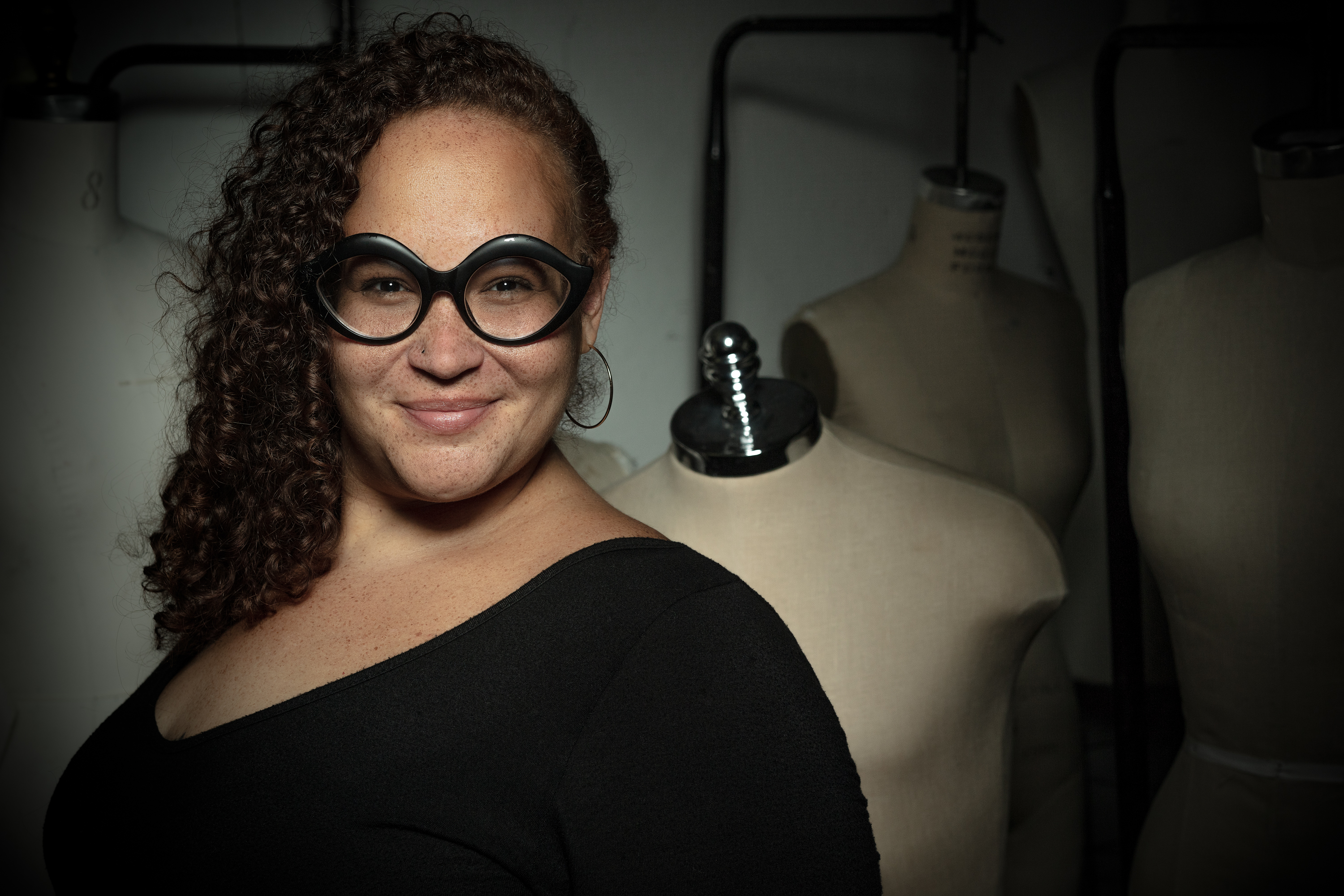
Exposing the hidden struggles of Puerto Rico through fashion
Fashion, for Nasheli Juliana Ortiz-González, is one of the best ways to understand the world since we all inherently have some connection to it.
“It’s very approachable and I think it’s very powerful to witness the message through fashion because of that,” said Ortiz-González, who in addition to designing for and running her brand, Nasheli Juliana, is the chair of the fashion department at Moore College of Art and Design.
And so it makes sense that Ortiz-González has focused her considerable talents as a designer on describing and revealing another perspective of the political history and current situation of her native island of Puerto Rico in her collection, “Stranded,” set to debut at Paris Fashion Week, which opens on Oct. 3.
The product of three years of research and work, the designs featured in the collection incorporate photos of different scenes from Puerto Rico’s political and economic struggles since it became a U.S. colony in 1898. The digitized images are arranged into what at first glance appears to be a striking and colorful pattern, but when viewed through 3-D glasses reveal the atrocities and strife that weave the fabric of Puerto Rico’s history and “underly such beauty,” according to Ortiz-González’s artist statement. The result, the statement explains, is an invitation to those viewing the collection to “‘change the lens through which they see the world’ by looking deeper into the perspective of others.”

CONTENIDO RELACIONADO
A colorful departure from Ortiz-González’s usual black and white color schemes, the designs in “Stranded” required Ortiz-González to incorporate textile technology processes such as sublimation, by which she was able to print the digitized design on paper and then transfer that to the textile material via the application of heat.
Though she had begun the project before Hurricane Maria devastated the island over a year ago, Ortiz-González said the disaster and the resulting suffering motivated her to continue working on the collection and complete it in order to speak about the island’s situation at a national and worldwide level.
“I think all the artists and the designers need to speak about this so that people know what is happening in Puerto Rico,” she said.

“A lot of people ...don’t understand how messed up our story [is], and our history, and how much our people are suffering right now,” she added, noting that addressing the island’s struggles in design and art “is a way for us to have some voice and make some noise and call some attention to what’s happening there.”










DEJE UN COMENTARIO: